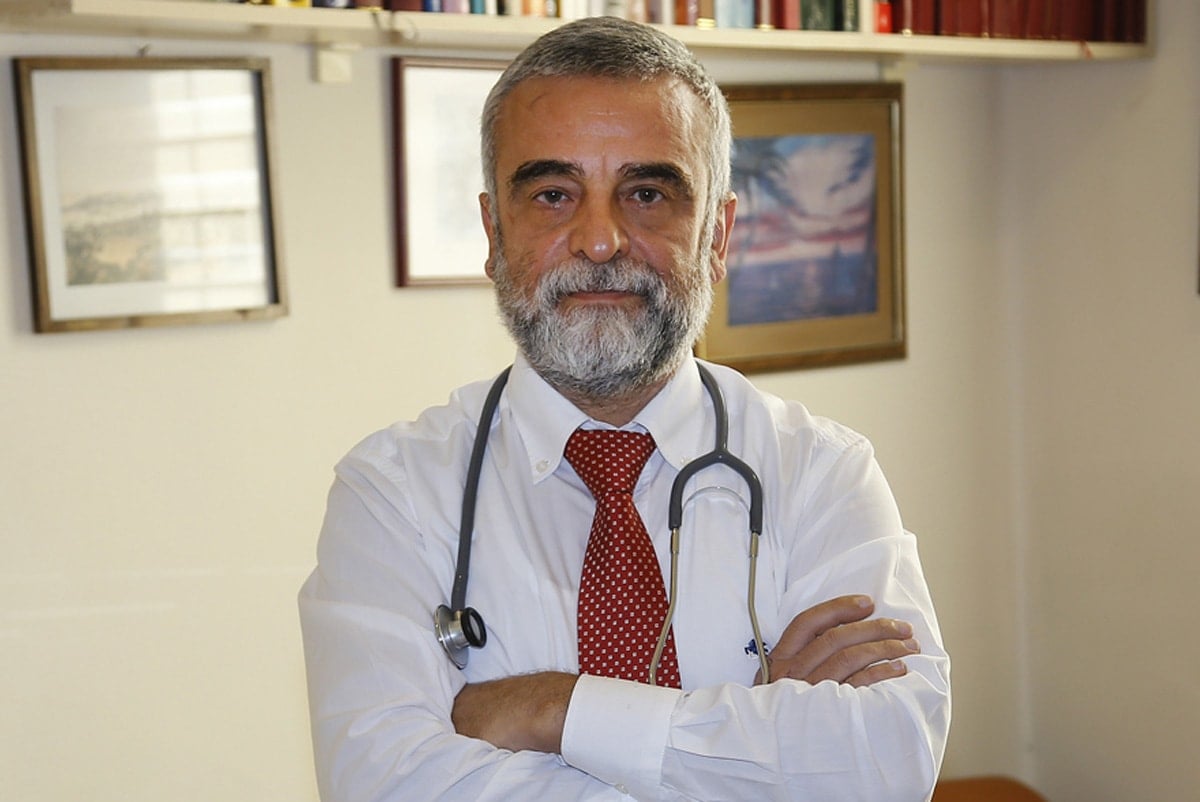Your veins may be old

All structures in the body are nourished by blood vessels. Therefore, protecting blood vessels from damage from an early age is vital for all tissues and organs, especially the heart. Vascular age is an indicator of the elasticity, thickness, stiffness, and overall health of blood vessels. Unchangeable factors that increase blood vessel age include:
Genetics: History of coronary artery disease in first-degree relatives.
Age: The incidence of cardiovascular disease increases significantly in patients over 65 years of age.
Gender: While the risk of coronary artery disease begins at a much earlier age in men than in women, the incidence increases in women after menopause, reaching the same level as in men. "While there are unchangeable risk factors, vascular health can be maintained through a healthy lifestyle by taking modifiable risk factors into account," says Internal Medicine Specialist Prof.
Internal Medicine Specialist Prof. Dr. Osman Erk explained the ways to keep the vascular age young as follows:

You are as healthy as your endotheliumProf. Dr. Osman Erk
The inner surface of our blood vessels is lined with a membrane called the endothelium. The endothelium has many important functions, from maintaining blood flow to preventing clotting.
Endothelial cells are extremely delicate and fragile. High cholesterol, hypertension, smoking, a lack of antioxidants in the diet, excess free radicals, excessive alcohol consumption, uncontrolled use of birth control pills (especially in conjunction with smoking), early menopause, inactivity, and elevated homocysteine, which causes blood clotting, have a toxic effect on the endothelium.
These reasons must be recognized and precautions taken. A person is only as healthy as their endothelium. Therefore, lifestyle changes are important, and the following points should be considered:
The damage caused by too much salt is also 'too much'The amount of salt we should consume daily from all foods is 5 grams, or about one teaspoon. However, in our country, we typically consume 15 grams, or three teaspoons, of salt per day. This, along with high blood pressure, leads to damage to the vascular wall and impaired function.
Therefore, it's important to reduce salt consumption. To achieve this, you can add flavor to your meals with spices like red pepper, thyme, turmeric, and black cumin.
What about your cholesterol, blood pressure and sugar?High levels of bad cholesterol (LDL) lead to cardiovascular disease. It is one of the leading causes of heart attack.
Blood pressure above 140/90 mmHg is defined as high blood pressure.
This can lead to plaque buildup in the arteries, heart attack, and stroke. A healthy person's fasting blood sugar level should be below 100 mg/dL.
High blood sugar causes long-term damage to blood vessels, organs, especially the heart and kidneys, and other tissues.
Cleansing foodsRegular consumption of Omega-3 fatty acids cleanses the vessels and reduces LDL cholesterol levels.
A Mediterranean-style, plant-based diet is vascular-friendly. Polyphenols, compounds found in plants, also prevent high blood pressure and have a protective effect against atherosclerosis.
Foods recommended for consumption include fruits and vegetables of all colors, fish (salmon, mackerel, tuna), nuts, cold-pressed olive oil, grains, raw nuts and legumes.
Processed foods, high in sugar, carbohydrates and fat should be avoided as much as possible.
Fat accumulation disrupts blood circulationExcess body fat puts pressure on blood vessels, impairing circulation. Losing weight can improve blood vessels by reducing inflammation and oxidative stress. It also lowers blood pressure, LDL (bad) cholesterol, and triglycerides, and balances blood sugar.
This may reduce the risk of developing conditions that damage blood vessels, such as diabetes and hypertension.
BEWARE of clotting!Smoking and passive smoking are among the most important causes of cardiovascular diseases.
Exposure to smoking, especially from a young age, damages the structure of blood vessels and slows blood flow. Over time, this slowing of blood flow can lead to clotting at the edges of the vessels.
Anger constricts blood vesselsStress and anger are also enemies of blood vessels. In both cases, the body increases the release of stress hormones like adrenaline and cortisol. These hormones increase heart rate, constrict blood vessels, and raise blood pressure. Stress management and anger management are important for maintaining youthful blood vessels, and therefore the body. For example, deep breathing during times of anger and stress can help you relax.
Insomnia is a serious threatInsomnia is also a serious threat to cardiovascular health.
Scientific research has shown that regular and quality sleep can prevent the mechanisms that lead to hardening of the arteries and loss of vascular health.
For the health of an adult, it is necessary to sleep at least 7-8 hours a day, and children need 9-10 hours.
If you don't go for a check-up, take these diseases into consideration.Regular health checkups are crucial for early diagnosis and treatment of diseases. Otherwise, cardiovascular disease, diabetes, and hypertension are inevitable. For heart-related conditions like high blood pressure and diabetes, adhering to the treatment plan and taking medications regularly are crucial for vascular health.
SÖZCÜ





